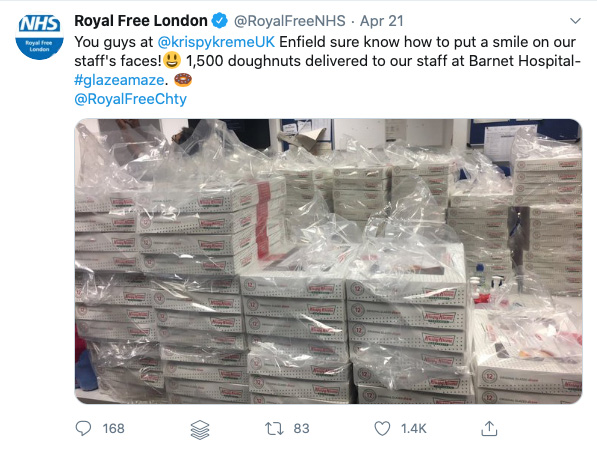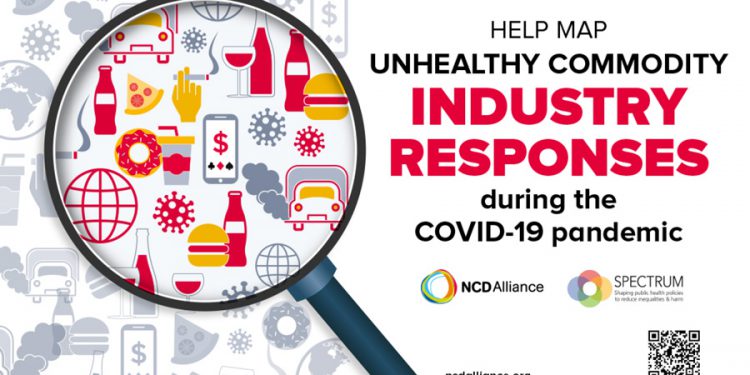Food business responses to Covid-19 have been wide and varied, from acts of kindness and generosity through to clear PR stunts. A major global organisation fighting for action over Non-Communicable Diseases (NCDs) has created a database to log food industry responses to COVID-19 which could be deemed unhealthy. The NCD Alliance, a global organisation supported by the United Nations and World Health Organisation, has launched a tool for reporting corporate activity which could be contributing to the burden of non-communicable diseases.
London’s Royal Free Hospital recently faced severe criticism for tweeting a delivery of 1,500 Krispy Kreme doughnuts. Opponents called the gift a ‘Trojan Horse’, that by tweeting the photo, the NHS had inadvertently advertised the kind of food which people should avoid at this time. Supporters claimed the gift of doughnuts to the team of hard-working medical staff should be applauded as an act of generosity.

While it is clear that many large businesses are playing a central role in providing essential supplies to those in need, the NCD Alliance believe that some corporate activities could also contribute to NCDs and undermine broader health or development goals. Their focus applies particularly to businesses who focus on products which are perveiced as being unhealthy, such as tobacco, alcohol, ultra-processed food and beverages, gambling, and fossil fuels.
Information will be collected and compiled in a database that can be used to map corporate responses during this time. Activities that are being considered include corporate social responsibility initiatives, philanthropy, new marketing campaigns and engagement in policy debates. The output of this project will help to develop research publications and inform policy strategies in the future.
The tool has been developed in tandem with Spectrum Research Consortium at the University of Edinburgh, whose work focusses on reducing inequalities and harm through public health policies. The short survey asks for the location, industry, activity, a link or screenshot, plus any comments about the example.
The tool is available in English, French, Spanish and Portuguese, with examples required that were identified between 30th January 2020 (when the WHO declared COVID-19 a Public Health Emergency of International Concern) and 30 June 2020. Users can make as many contributions as they wish.























